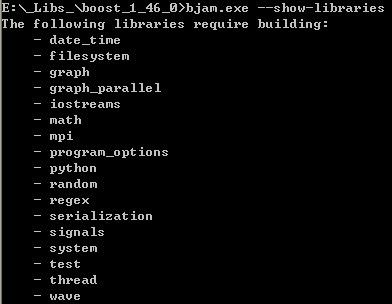qt数据库操作总结整理一下QT操作数据库的一些要点,以备以后的查询学习(主要是操作mysql)。首先,要查询相关的驱动是否已经装好了,可以用以下的程序进行验证:#include#include#include#includeintmain(intargc,char*argv[]){QCoreApplicationa(argc,argv);qDebug()
彻底解决分布式环境下Redisson消息队列监听重复执行问题
renkai721
JAVA分布式redissonredis数据重复微服务springboot
问题现象:测试环境单台部署,没有问题,生产环境多台部署订单都是2条重复数据。问题描述:我们把每个服务都部署了2台,订单产生后,有redisson的mq发布,如果MQListener监听到就会执行后面的业务逻辑。现实的问题是2台MQListener都会监听到,会重复处理我们的逻辑,插入数据库或修改数据库或写入ES等都会执行2遍。本文的DEMO中使用的是redisson的mq来测试的,同时Rabbit
近期生活随笔
飞天kuma
生活杂谈创业人生生活
因为开店的原因,一直觉得没什么能和大家去分享的,但是最近听到了之前同事的情况,比较之下,还是准备写点什么。因为每天跟不同的客户打交道,所以现在会不会购买东西,也大概心里有数了,说话少,问的少的,往往比各种问的购买可能性会更高,因为可能一个产品有很多种,比如数据线,有三合一的,有1米的,有1.5米的,有2米的,本身在没有想好的情况下,让我去推荐,我也不知道需求点在哪,当我推荐了一圈之后,往往得到的答
Java基础知识三(运算符)
浪迹天涯的贺
Java基础系列上java开发语言
提示:文章写完后,目录可以自动生成,如何生成可参考右边的帮助文档前言更新第三篇文章,这篇文章讲一下Java的运算符相关的知识,对于Java中所有的运算符的种类和内容做一个总结在Java编程中,运算符(Operators)是执行特定操作的符号,它们用于操作变量和数据。本文将详细介绍Java中的运算符种类、用法以及其作用。1.算术运算符(ArithmeticOperators)算术运算符用于执行基本的
在centos7里面安装 mysql5.6.44
SAFE20242034
#三MySQL运维mysql
一查询系统自带的mysqlroot@obdserver~]#rpm-qa|grepmysql二卸载系统自带的mysql因为没有mysql,所以也不用卸载三下载安装官方的yum源[root@obdserver~]#ll/etc/yum.repos.d/总用量40-rw-r--r--.1rootroot25233月1201:22CentOS-Base.repo-rw-r--r--.1rootroot1
光伏储能直流系统MATLAB仿真(PV光伏阵列+Boost DCDC变换器+负载+双向DCDC变换器+锂离子电池系统)
yyds_2201
matlab开发语言
欢迎来到本博客❤️❤️博主优势:博客内容尽量做到思维缜密,逻辑清晰,为了方便读者。⛳️座右铭:行百里者,半于九十。本文目录如下:目录1概述光伏储能直流系统MATLAB仿真研究一、引言二、光伏储能直流系统的基本构成(一)PV光伏阵列(二)BoostDC/DC变换器(三)负载(四)双向DC/DC变换器(五)锂离子电池系统(六)控制模块(七)观测模块三、MATLAB仿真模型建立(一)光伏阵列模型(二)B
前端应用更新通知机制全解析:构建智能化版本更新策略
斯~内克
前端前端
引言:数字时代的更新挑战在持续交付的现代软件开发模式下,前端应用平均每周产生2-3次版本迭代。但据Google研究报告显示,38%的用户在遇到功能异常时仍在使用过期版本的应用。如何优雅地实现版本更新通知,已成为提升用户体验的关键技术挑战。本文将深入探讨从基础到进阶的更新通知方案,结合最新Web技术提供完整的解决方案。一、核心检测机制剖析1.1版本标识策略语义化版本控制:采用major.minor.
吴大仙带你三分钟学会swoole框架
大仙带你飞
phpswoole
前言最近在学习swoole这个东西,就写点心得吧。基于swoole的开源框架很多,优缺点自己百度,凡是有用到websocket和消费队列选择基于swoole的框架是不错的选择。好吧话不多说,吴大仙就介绍一下swoole的一个简单入门吧正文swoole有两个部分。一个是PHP扩展,用C开发的,这是核心。另一个是框架,像yii、TP、Laravel一样,是PHP代码写的。swoole扩展本身提供了we
在NET6项目中报错,未能在命名空间System.Data.SqlClient中找到类型名SqlCommand,解决办法
luckyext
c#后端.netvisualstudioasp.netsql前端
在NET6项目中报错,未能在命名空间System.Data.SqlClient中找到类型名SqlCommand问题:NET6项目编译时报错如下未能在命名空间“System.Data.SqlClient”中找到类型名“SqlCommand”。此类型已转发到程序集“System.Data.SqlClient,Version=0.0.0.0,Culture=neutral,PublicKeyToken=
xxl-job 执行器端服务器的简单搭建
一切随缘~~~
xxl-jobxxljob
xxl-job执行器端服务器的简单搭建先讲一下我们平时怎么使用xxl-job的,再引出背后是如何实现的。我觉得对于一款成功的框架来说,好用,是非常重要的一个特性。框架要便于接入,便于使用。对于用户来说,不要有太多的使用成本,最好是能够开箱即用,快速上手的。Java为什么这么流行呢?因为它的生态好。说是生态好,其实就是Spring那一套嘛,后面又有了SpringBoot。你想要使用什么组件,市面上基
制造业数字化转型之工业级远程控制方案选型指南
2501_90729959
RayLink远程控制软件远程控制云计算网络
在“中国制造2025”战略和“双碳”目标的推动下,制造业的数字化转型已经成为了企业提升竞争力、实现高质量发展的关键路径。工业级远程控制方案作为转型的关键支撑技术,通过设备互联、数据驱动和智能运维,正在改变传统的生产管理模式。今天,我们就围绕远程控制技术,结合行业实践和政策导向,为企业提供一份选型指南。一、数字化转型背景下的远程控制需求制造业对远程控制的需求,主要来自三大核心场景:生产设备运维、跨地
【GreatSQL优化器-17】DYNAMIC RANGE
数据库mysql
【GreatSQL优化器-17】DYNAMICRANGE一、DYNAMICRANGE介绍GreatSQL的优化器有一种扫描方式是动态范围扫描方式,类似于“已读乱回”模式,这种模式是在表有多个索引的情况下,对驱动表连接的时候部分选择索引的情况。优化器没有找到好的索引可以使用,但发现在知道前面表的列值后,可能会使用某些索引。对于前面表中的每个行组合,优化器检查是否可以使用range或indexmerg
深度学习五大模型:CNN、Transformer、BERT、RNN、GAN详细解析
深度学习
卷积神经网络(ConvolutionalNeuralNetwork,CNN)原理:CNN主要由卷积层、池化层和全连接层组成。卷积层通过卷积核在输入数据上进行卷积运算,提取局部特征;池化层则对特征图进行下采样,降低特征维度,同时保留主要特征;全连接层将特征图展开为一维向量,并进行分类或回归计算。CNN利用卷积操作实现局部连接和权重共享,能够自动学习数据中的空间特征。适用场景:广泛应用于图像处理相关的
Debian:apt-get命令汇总
apt-get命令是DebianLinux发行版中的APT软件包管理工具。所有基于Debian的发行(常见的10个基于Debian的Linux发行版)都使用这个包管理系统。deb包可以把一个应用的文件包在一起,大体就如同Windows上的安装文件。语法apt-get[OPTION]PACKAGE选项apt-getinstall#安装新包apt-getremove#卸载已安装的包(保留配置文件)ap
Linux使用cpulimit对CPU使用率进行限制
云服务器linux运维cpu
介绍cpulimit是一款可以对CPU使用率进行限制的软件,既可限制单个特定程序,也可以对整个CPU使用率进行限制,安装使用都很方便,需要的朋友可以试试。源安装(推荐)Centos:yuminstallcpulimitDebian/Ubuntu:apt-getinstall-ycpulimit编译安装cd/tmpwget'https://www.02405.com/wp-content/uploa
RTX3060帧率优化与电竞级配置实战
智能计算研究中心
其他
内容概要《RTX3060帧率优化与电竞级配置实战》围绕NVIDIAGeForceRTX3060显卡的性能释放展开,系统梳理从硬件适配到软件调校的全链路优化策略。内容涵盖显卡驱动参数的精细化设置、游戏画质与帧率平衡的实战技巧,以及1080P与2K分辨率下的帧率对比测试数据。此外,针对电竞场景需求,文章详细解析了CPU、内存与散热系统的协同配置方案,确保硬件组合在高负载下的稳定性。核心章节优化方向显卡
小红书,把失业线压到了 32 岁。
java
大家好,我是R哥。最近的面试辅导,有个兄弟找我咨询,他说:我马上就35岁了,双非二本,还有没有机会冲下大厂?我看了下他的简历,年龄和学历没有优势不说,还都在小公司、外包工作,我和他说,去互联网大厂基本没有可能,别死盯着大厂,同时看看其他的机会。要知道,在互联网大厂,到了35岁就是高压线了,小红书,都把“失业线”压到了32岁。之前就看到一位网友吐槽:他说自己被猎头内推到小红书的研发岗,但因为「年纪大
RTX4070Ti性能实测与优化解析
智能计算研究中心
其他
内容概要本文将以NVIDIAGeForceRTX4070Ti显卡为核心,系统化呈现其在4K与2K分辨率下的性能表现差异,并深入解析光线追踪与DLSS3.0技术对游戏体验的实际影响。通过15款主流3A大作的帧数实测数据,结合《赛博朋克2077》《艾尔登法环》等典型场景的测试结果,量化对比不同画质预设下的流畅度变化。此外,文章将提供经过验证的超频参数配置方案,涵盖电压调节、核心频率偏移及显存时序优化,
【操作系统之对换技术详解】
武帝为此
操作系统服务器网络
文章目录一、前言二、对换技术的原理1.什么是对换(Swapping)?2.为什么需要对换?三、对换的工作过程1️⃣内存不足,触发对换2️⃣将内存中的数据写入磁盘3️⃣释放内存4️⃣数据交换回内存四、对换与分页的区别五、对换的优缺点✅优点:❌缺点:六、现代操作系统中的对换✅1️⃣LinuxSwap分区✅2️⃣Windows虚拟内存七、总结一、前言在操作系统中,对换(Swapping)是一种将内存与磁
c++基础
冰凉的保温瓶
c++开发c++
extern关键字https://www.cnblogs.com/honernan/p/13431431.html定义和声明在介绍extern之前,我们需要了解一下变量的声明和定义。变量的声明指向程序表名变量的类型和名字,即使得名字为程序所知,一个文件如果想使用别处定义的名字则必须包含对那个名字的声明。而变量的定义指申请存储空间,并将其与变量名相关联,除此之外,还可以为变量指定初始值。在程序中变量
C++核心编程手册
易方达蓝筹
Cor计算机网络c++开发语言后端
C++核心编程本阶段主要针对C++面向对象编程技术做详细讲解,探讨C++中的核心和精髓。1内存分区模型C++程序在执行时,将内存大方向划分为4个区域代码区:存放函数体的二进制代码,由操作系统进行管理的全局区:存放全局变量和静态变量以及常量栈区:由编译器自动分配释放,存放函数的参数值,局部变量等堆区:由程序员分配和释放,若程序员不释放,程序结束时由操作系统回收内存四区意义:不同区域存放的数据,赋予不
面试中JVM常被问到的问题以及对应的答案
酷爱码
经验分享面试jvm职场和发展
在面试中,关于JVM常被问到的问题以及对应的答案可能包括:什么是JVM?它的作用是什么?答:JVM是Java虚拟机的缩写,是Java程序运行的环境。它负责将Java源代码编译成字节码并运行在不同平台上。请解释一下JVM的内存结构。答:JVM内存结构主要包括堆内存、方法区、虚拟机栈、本地方法栈和程序计数器等部分。什么是Java的垃圾回收机制?答:Java的垃圾回收机制是通过不再被引用的对象由垃圾收集
融合AMD与NVIDIA GPU集群的MLOps:异构计算环境中的分布式训练架构实践
在深度学习的背景下,NVIDIA的CUDA与AMD的ROCm框架缺乏有效的互操作性,导致基础设施资源利用率显著降低。随着模型规模不断扩大而预算约束日益严格,2-3年更换一次GPU的传统方式已不具可持续性。但是Pytorch的最近几次的更新可以有效利用异构计算集群,实现对所有可用GPU资源的充分调度,不受制于供应商限制。本文将深入探讨如何混合AMD/NVIDIAGPU集群以支持PyTorch分布式训
jdk tomcat 环境变量配置
Array_06
javajdktomcat
Win7 下如何配置java环境变量
1。准备jdk包,win7系统,tomcat安装包(均上网下载即可)
2。进行对jdk的安装,尽量为默认路径(但要记住啊!!以防以后配置用。。。)
3。分别配置高级环境变量。
电脑-->右击属性-->高级环境变量-->环境变量。
分别配置 :
path
&nbs
Spring调SDK包报java.lang.NoSuchFieldError错误
bijian1013
javaspring
在工作中调另一个系统的SDK包,出现如下java.lang.NoSuchFieldError错误。
org.springframework.web.util.NestedServletException: Handler processing failed; nested exception is java.l
LeetCode[位运算] - #136 数组中的单一数
Cwind
java题解位运算LeetCodeAlgorithm
原题链接:#136 Single Number
要求:
给定一个整型数组,其中除了一个元素之外,每个元素都出现两次。找出这个元素
注意:算法的时间复杂度应为O(n),最好不使用额外的内存空间
难度:中等
分析:
题目限定了线性的时间复杂度,同时不使用额外的空间,即要求只遍历数组一遍得出结果。由于异或运算 n XOR n = 0, n XOR 0 = n,故将数组中的每个元素进
qq登陆界面开发
15700786134
qq
今天我们来开发一个qq登陆界面,首先写一个界面程序,一个界面首先是一个Frame对象,即是一个窗体。然后在这个窗体上放置其他组件。代码如下:
public class First { public void initul(){ jf=ne
Linux的程序包管理器RPM
被触发
linux
在早期我们使用源代码的方式来安装软件时,都需要先把源程序代码编译成可执行的二进制安装程序,然后进行安装。这就意味着每次安装软件都需要经过预处理-->编译-->汇编-->链接-->生成安装文件--> 安装,这个复杂而艰辛的过程。为简化安装步骤,便于广大用户的安装部署程序,程序提供商就在特定的系统上面编译好相关程序的安装文件并进行打包,提供给大家下载,我们只需要根据自己的
socket通信遇到EOFException
肆无忌惮_
EOFException
java.io.EOFException
at java.io.ObjectInputStream$PeekInputStream.readFully(ObjectInputStream.java:2281)
at java.io.ObjectInputStream$BlockDataInputStream.readShort(ObjectInputStream.java:
基于spring的web项目定时操作
知了ing
javaWeb
废话不多说,直接上代码,很简单 配置一下项目启动就行
1,web.xml
<?xml version="1.0" encoding="UTF-8"?>
<web-app xmlns:xsi="http://www.w3.org/2001/XMLSchema-instance"
xmlns="h
树形结构的数据库表Schema设计
矮蛋蛋
schema
原文地址:
http://blog.csdn.net/MONKEY_D_MENG/article/details/6647488
程序设计过程中,我们常常用树形结构来表征某些数据的关联关系,如企业上下级部门、栏目结构、商品分类等等,通常而言,这些树状结构需要借助于数据库完成持久化。然而目前的各种基于关系的数据库,都是以二维表的形式记录存储数据信息,
maven将jar包和源码一起打包到本地仓库
alleni123
maven
http://stackoverflow.com/questions/4031987/how-to-upload-sources-to-local-maven-repository
<project>
...
<build>
<plugins>
<plugin>
<groupI
java IO操作 与 File 获取文件或文件夹的大小,可读,等属性!!!
百合不是茶
类 File
File是指文件和目录路径名的抽象表示形式。
1,何为文件:
标准文件(txt doc mp3...)
目录文件(文件夹)
虚拟内存文件
2,File类中有可以创建文件的 createNewFile()方法,在创建新文件的时候需要try{} catch(){}因为可能会抛出异常;也有可以判断文件是否是一个标准文件的方法isFile();这些防抖都
Spring注入有继承关系的类(2)
bijian1013
javaspring
被注入类的父类有相应的属性,Spring可以直接注入相应的属性,如下所例:1.AClass类
package com.bijian.spring.test4;
public class AClass {
private String a;
private String b;
public String getA() {
retu
30岁转型期你能否成为成功人士
bijian1013
成长励志
很多人由于年轻时走了弯路,到了30岁一事无成,这样的例子大有人在。但同样也有一些人,整个职业生涯都发展得很优秀,到了30岁已经成为职场的精英阶层。由于做猎头的原因,我们接触很多30岁左右的经理人,发现他们在职业发展道路上往往有很多致命的问题。在30岁之前,他们的职业生涯表现很优秀,但从30岁到40岁这一段,很多人
【Velocity四】Velocity与Java互操作
bit1129
velocity
Velocity出现的目的用于简化基于MVC的web应用开发,用于替代JSP标签技术,那么Velocity如何访问Java代码.本篇继续以Velocity三http://bit1129.iteye.com/blog/2106142中的例子为基础,
POJO
package com.tom.servlets;
public
【Hive十一】Hive数据倾斜优化
bit1129
hive
什么是Hive数据倾斜问题
操作:join,group by,count distinct
现象:任务进度长时间维持在99%(或100%),查看任务监控页面,发现只有少量(1个或几个)reduce子任务未完成;查看未完成的子任务,可以看到本地读写数据量积累非常大,通常超过10GB可以认定为发生数据倾斜。
原因:key分布不均匀
倾斜度衡量:平均记录数超过50w且
在nginx中集成lua脚本:添加自定义Http头,封IP等
ronin47
nginx lua csrf
Lua是一个可以嵌入到Nginx配置文件中的动态脚本语言,从而可以在Nginx请求处理的任何阶段执行各种Lua代码。刚开始我们只是用Lua 把请求路由到后端服务器,但是它对我们架构的作用超出了我们的预期。下面就讲讲我们所做的工作。 强制搜索引擎只索引mixlr.com
Google把子域名当作完全独立的网站,我们不希望爬虫抓取子域名的页面,降低我们的Page rank。
location /{
java-3.求子数组的最大和
bylijinnan
java
package beautyOfCoding;
public class MaxSubArraySum {
/**
* 3.求子数组的最大和
题目描述:
输入一个整形数组,数组里有正数也有负数。
数组中连续的一个或多个整数组成一个子数组,每个子数组都有一个和。
求所有子数组的和的最大值。要求时间复杂度为O(n)。
例如输入的数组为1, -2, 3, 10, -4,
Netty源码学习-FileRegion
bylijinnan
javanetty
今天看org.jboss.netty.example.http.file.HttpStaticFileServerHandler.java
可以直接往channel里面写入一个FileRegion对象,而不需要相应的encoder:
//pipeline(没有诸如“FileRegionEncoder”的handler):
public ChannelPipeline ge
使用ZeroClipboard解决跨浏览器复制到剪贴板的问题
cngolon
跨浏览器复制到粘贴板Zero Clipboard
Zero Clipboard的实现原理
Zero Clipboard 利用透明的Flash让其漂浮在复制按钮之上,这样其实点击的不是按钮而是 Flash ,这样将需要的内容传入Flash,再通过Flash的复制功能把传入的内容复制到剪贴板。
Zero Clipboard的安装方法
首先需要下载 Zero Clipboard的压缩包,解压后把文件夹中两个文件:ZeroClipboard.js
单例模式
cuishikuan
单例模式
第一种(懒汉,线程不安全):
public class Singleton { 2 private static Singleton instance; 3 pri
spring+websocket的使用
dalan_123
一、spring配置文件
<?xml version="1.0" encoding="UTF-8"?><beans xmlns="http://www.springframework.org/schema/beans" xmlns:xsi="http://www.w3.or
细节问题:ZEROFILL的用法范围。
dcj3sjt126com
mysql
1、zerofill把月份中的一位数字比如1,2,3等加前导0
mysql> CREATE TABLE t1 (year YEAR(4), month INT(2) UNSIGNED ZEROFILL, -> day
Android开发10——Activity的跳转与传值
dcj3sjt126com
Android开发
Activity跳转与传值,主要是通过Intent类,Intent的作用是激活组件和附带数据。
一、Activity跳转
方法一Intent intent = new Intent(A.this, B.class); startActivity(intent)
方法二Intent intent = new Intent();intent.setCla
jdbc 得到表结构、主键
eksliang
jdbc 得到表结构、主键
转自博客:http://blog.csdn.net/ocean1010/article/details/7266042
假设有个con DatabaseMetaData dbmd = con.getMetaData(); rs = dbmd.getColumns(con.getCatalog(), schema, tableName, null); rs.getSt
Android 应用程序开关GPS
gqdy365
android
要在应用程序中操作GPS开关需要权限:
<uses-permission android:name="android.permission.WRITE_SECURE_SETTINGS" />
但在配置文件中添加此权限之后会报错,无法再eclipse里面正常编译,怎么办?
1、方法一:将项目放到Android源码中编译;
2、方法二:网上有人说cl
Windows上调试MapReduce
zhiquanliu
mapreduce
1.下载hadoop2x-eclipse-plugin https://github.com/winghc/hadoop2x-eclipse-plugin.git 把 hadoop2.6.0-eclipse-plugin.jar 放到eclipse plugin 目录中。 2.下载 hadoop2.6_x64_.zip http://dl.iteye.com/topics/download/d2b
如何看待一些知名博客推广软文的行为?
justjavac
博客
本文来自我在知乎上的一个回答:http://www.zhihu.com/question/23431810/answer/24588621
互联网上的两种典型心态:
当初求种像条狗,如今撸完嫌人丑
当初搜贴像条犬,如今读完嫌人软
你为啥感觉不舒服呢?
难道非得要作者把自己的劳动成果免费给你用,你才舒服?
就如同 Google 关闭了 Gooled Reader,那是
sql优化总结
macroli
sql
为了是自己对sql优化有更好的原则性,在这里做一下总结,个人原则如有不对请多多指教。谢谢!
要知道一个简单的sql语句执行效率,就要有查看方式,一遍更好的进行优化。
一、简单的统计语句执行时间
declare @d datetime ---定义一个datetime的变量set @d=getdate() ---获取查询语句开始前的时间select user_id
Linux Oracle中常遇到的一些问题及命令总结
超声波
oraclelinux
1.linux更改主机名
(1)#hostname oracledb 临时修改主机名
(2) vi /etc/sysconfig/network 修改hostname
(3) vi /etc/hosts 修改IP对应的主机名
2.linux重启oracle实例及监听的各种方法
(注意操作的顺序应该是先监听,后数据库实例)
&nbs
hive函数大全及使用示例
superlxw1234
hadoophive函数
具体说明及示例参 见附件文档。
文档目录:
目录
一、关系运算: 4
1. 等值比较: = 4
2. 不等值比较: <> 4
3. 小于比较: < 4
4. 小于等于比较: <= 4
5. 大于比较: > 5
6. 大于等于比较: >= 5
7. 空值判断: IS NULL 5
Spring 4.2新特性-使用@Order调整配置类加载顺序
wiselyman
spring 4
4.1 @Order
Spring 4.2 利用@Order控制配置类的加载顺序
4.2 演示
两个演示bean
package com.wisely.spring4_2.order;
public class Demo1Service {
}
package com.wisely.spring4_2.order;
public class

